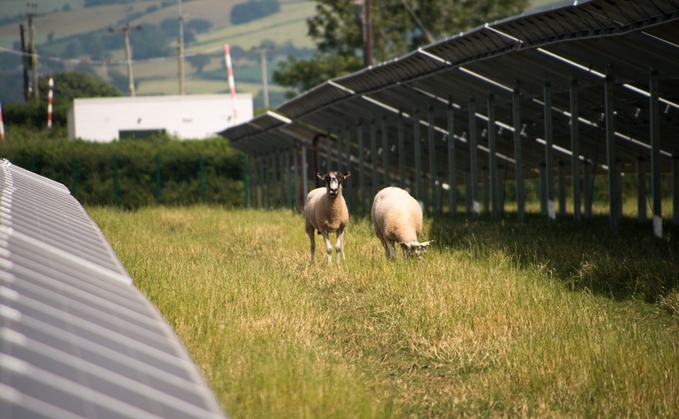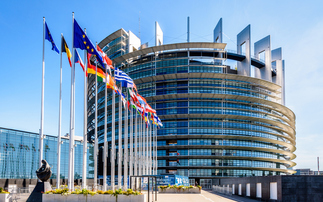
The government's repeated failure to promote energy saving, enhance energy efficiency, and deliver more domestic energy generation is condemning the UK to an era of rolling crises
Be in no doubt, one man bears primary responsibility for the energy crisis gripping the UK and the rest of Europe. He is an authoritarian kleptocrat, an instigator of war crimes, and a brutal imperialist. His name is Vladimir Putin and it is his illegal invasion of Ukraine and weaponising of energy supplies that has sent gas prices soaring to record levels and unleashed economic havoc.
It is also true, as Emmanuel Macron has told the people of France and as Boris Johnson belatedly this week hinted to the people Britain, that sacrifices will have to be made, that we will have to "endure" hardships that are but a fraction of those being bravely faced by the people of Ukraine. As Macron argued this week, the world has entered a new era. The combination of escalating climate impacts and geopolitical tensions mean we are facing "the end of abundance, the end of insouciance, the end of assumptions".
At the grand historic level, it was always likely to be this way. The impact of droughts, storms, and rising sea levels on economies and institutions that are in no way prepared for the ensuing fall out following decades of under investment and worsening inequality was always going to unleash a new era of instability. At the same time, the clean tech revolution and the erosion of the power petrostates have enjoyed for over a century was always going to result in a realignment that would ratchet up the risk of conflict. The delicate equations required to gently wind down fossil fuel supply and demand in unison were always going to be immensely challenging, even before you realise some of those equations have to be carried out by violent sociopaths. It's like throwing a game of chess into the middle of a knife fight. And yet both battles have to be won.
It is also worth remembering on the eve of the bleakest of winter that the spoils of victory will be enormous. A UK and European economy that ends it reliance on Russian oil and gas will be healthier, wealthier, and safer for all. A renewables-dominated clean energy system in which gas is a marginal concern will result in costs that are significantly lower and more predictable. Homes that are properly insulated and electrified would have energy bills that are more than a thousand pounds a year lower. This crisis could and should trigger the next phase of a net zero transition that can boost the economy and deliver multiple energy security and health benefits, while also helping to stabilise global temperatures.
The problem for the government is this message would be much easier to land with an increasingly angry and anxious public if Ministers had been doing everything in their power to minimise the impact of soaring energy bills and deliver a credible response to the crisis, but they haven't been - not even close. The government has made this crisis worse than it needed to be.
The government and the two Conservative leadership campaigns will inevitably bristle at this accusation. They will point to the multi-billion pound support packages and clean tech tax breaks the government announced in March, the long term plans to boost domestic energy generation they announced in April, and the need to know precisely how much energy bills were set to rise by in October before they could announce further measures.
But this defence is to rewrite history. It was obvious as soon as the Energy Security Strategy was announced that it was badly underpowered and contained insufficient measures to bolster near term energy security. It has been obvious for months that huge increases in bills were coming this winter, just as it has been obvious for years that the cuts to energy efficiency programmes and the blocks on onshore renewables development imposed by the Cameron government have served to drive up energy bills. The government has fallen asleep at the wheel, stuck its head in the sand, and abandoned its post.
Here is what could and should have happened. In March, the government could have levelled with the public about the true scale of the crisis and pulled every available policy lever to curb domestic energy demand and boost near term supplies. It could have granted emergency planning approval to onshore wind and solar farms, some of which would have been able to come online this winter. It could have borrowed and closed windfall tax loopholes so as to double or treble or quadruple energy efficiency upgrade schemes for homes and businesses. It could have introduced stamp duty tax breaks for people improving the efficiency of their homes, properly promoted its heat pump grant scheme, and fast-tracked plans for low interest green home loans. It could have promoted demand response services and time-of-use tariffs. It could have done everything in its power to accelerate proposed electricity market reforms to stop soaring wholesale gas prices having an outsized impact on wholesale power prices at a time when renewables and nuclear provide more than half our power.
It could have provided funding to local authorities to recruit boiler engineers to go street by street to optimise boiler flow temperatures or it could have extended this duty to gas companies and ordered them to pay for it through their windfall profits. It could have instructed public and commercial buildings to turn lights off and thermostats down. It could have launched high profile public information campaigns to help people save energy. It could, to borrow Greta Thunberg's phrase, have told the truth. It could, in short, have launched a modern-day war effort. Instead, the government failed us.
We know all these measures were entirely feasible for two reasons: other European countries have spent the past few months doing them; and the government considered many of them earlier this year before actively rejecting them. It was the most grievous and obvious error of judgement. In many ways it was a failure even worse than the mishandling of the first phase of the pandemic and the economic mismanagement that has resulted in a decade of flatlining wages and productivity.
It is easy to forget, but in the run up to the release of the Energy Security Strategy stories were briefed about plans to significantly expand domestic energy efficiency schemes and ease planning restrictions on onshore wind and solar farms. Such plans never materialised; the increased spending on efficiency blocked by Rishi Sunak's Treasury and its desire to keep funds back for pre-election tax cuts, and the onshore renewables plans blocked by various Cabinet members grumbles to the press that wind farms are "eyesores". It was decided that Liz Truss' distaste for solar farms and Grant Shapps' hatred of wind turbines was more important than your energy bills.
It is important to acknowledge that measures to curb energy demand, enhance energy efficiency, and boost near term domestic energy supplies would not have stopped the energy price cap rising. As such, significant additional support would still have been required, either through a version of Labour's plan to freeze the price cap or a huge increase in financial support to the most vulnerable households and businesses. This will inevitably be the focus of much of the debate in the coming days.
But it is also true that an effective near-term energy security strategy would have dampened the impact of soaring bills, provided assurance to the public and businesses that the government had a grip on the crisis, and reduced the price tag of the multi-billion bailout the Treasury is now going to have to provide.
It is doubly important that the arguments made ahead of April's Energy Security Strategy are now relitigated, because precisely the same unforced errors are being made once again. There was no Minister on the morning media round this morning. Liz Truss's campaign is insisting the way to solve the crisis is through increased North Sea oil and gas production, seemingly unaware that the industry has already drastically boosted supplies in recent months and prices have kept spiralling upwards. Rishi Sunak has belatedly acknowledged a "massive" increase in energy efficiency funding is required - an admission that should be disqualifying given it was within his gift to deliver such a move last Spring when it could have made a difference. Meanwhile, both candidates have spent the summer attacking solar farms, misleading the public about the ability of fracking projects to play a meaningful role in tackling the crisis, and singularly failing to engage with the solutions that could help. Just as was the case earlier in the year, the focus has been entirely on domestic generation projects that will take years to come online.
The best time to deliver an effective energy security strategy centred on energy efficiency and onshore renewables was a decade ago. The second best time was the day Russian tanks rolled over the Ukrainian border. But the third best time is now. The hope is that after the sound and fury of an ill-tempered and insanely long leadership campaign is over, the next Prime Minister will sit down with their new Cabinet and properly engage with the true scale of the crisis and the various obvious solutions that are available.
It is self-evident that what is needed is a huge increase in support for households and businesses to help them cope with the looming price shock. But that intervention needs to be followed by a genuinely ambitious and immediate acceleration of the UK's net zero strategy that uses every available means to save energy, enhance energy efficiency, and boost domestic energy supplies through the onshore renewables projects that can be delivered fastest. Longer term measures to deliver new offshore wind farms, nuclear projects, and, yes, even gas in conjunction with carbon capture and storage also need to be pursued, but they should not be presented as a solution that can make any difference this side of 2025.
At the same time, the arguments presented by some Conservative MPs and their media outriders that Greta Thunberg and the net zero transition are in some way to blame for this crisis are so objectively ridiculous that they should be publicly dismissed out of hand. The only way to combat a problem caused by gas prices is to use less gas.
Putin may be the primary cause of the current crisis, but the scale of it is the result of choices made by Johnson, Sunak, Truss, and the entire Conservative government over the course of the past year, and indeed the past decade. Obvious solutions are available. Solutions that would boost the economy, minimise the third economic disaster in 15 years, bolster UK competitiveness and improve health and wellbeing, and deliver the emissions reductions that are so desperately required to help the world navigate the era of global climate crisis. It is long past time for Ministers to get a grip.








